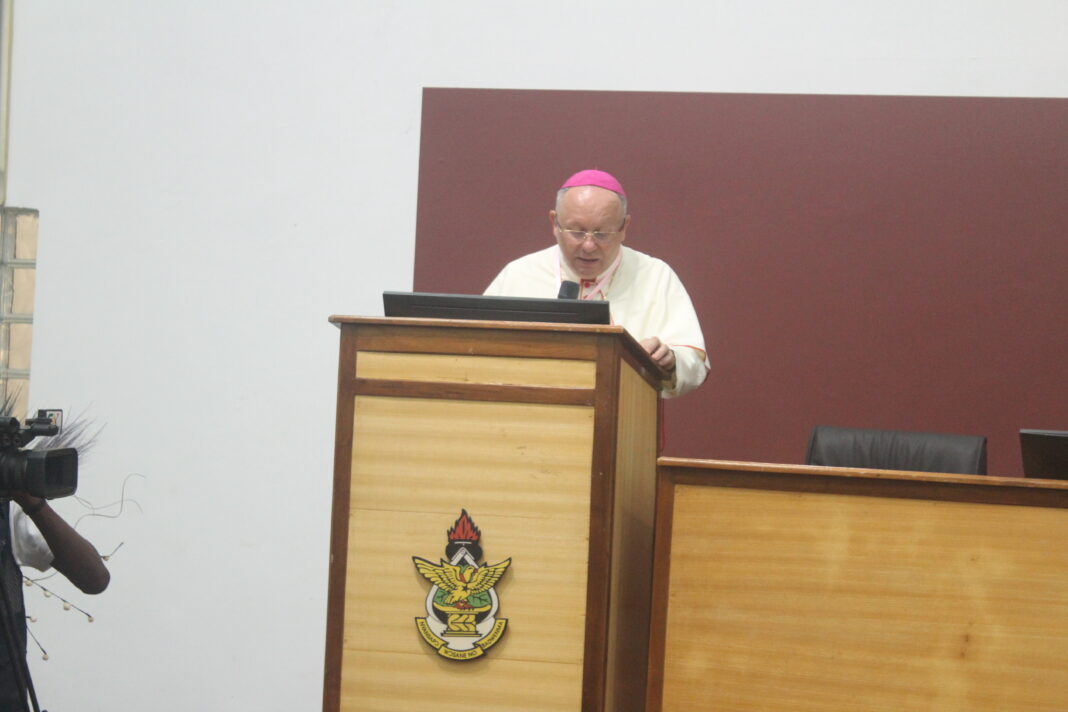Theme: “Kumasi, Meeting Point of Religion, Royalty and Diplomacy: Commemorating 140 years of the visit of Father Auguste Moreau, SMA, to Manhyia” at the Kwame Nkrumah University of Science and Technology School of Business, Kumasi, January 19, 2023.
The concept and tasks of papal diplomacy
If we want to define what diplomacy is, it can be said in general terms that it is a tool that individual states use to achieve their goals and pursue their interests in the context of international relations. It has its own organs of responsibility, with its own rules, which are partly determined by custom and partly defined by agreements on diplomatic law and by internal norms. These principles form the basis for conducting diplomatic activities. The Holy See, which actively participated in their creation, also applies these rules. The Holy See has also adopted and uses this instrument of diplomacy, and it does so, not only to achieve its own goals, which, however, differ from the goals that States set for themselves, but according to their own particular nature gives this instrument a different meaning and essence.
Speaking of diplomacy, we automatically mean activities that are the exclusive domain of a given state in relation to other countries. Therefore, many who speak about papal diplomacy, often call it Vatican diplomacy, mistakenly consider it a manifestation of the activity of the Vatican City-State. Papal diplomacy is an expression of the Holy See’s own activity, which is the supreme authority in the Catholic Church.
First of all, it is important to point out that the subject who acts in contact with the actors of international life is neither the Catholic Church as a community of believers, nor the Vatican City State – a tiny “support State” that ensures a minimum territory for the spiritual freedom of the Holy Father – but the Holy See: the Pope and the Roman Curia, spiritual and universal authority, as the unique center of communion, a sovereign subject of international law, of a religious and moral character.
According to can. 361 of the Code of Canon Law of 1983, the name “Holy See” means “not only the Roman Pontiff, but also the Secretariat of State, the Council for Public Affairs of the Church [the current Section for Relations with States] and the other bodies of the Roman Curia”.
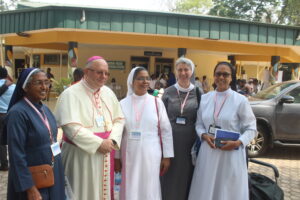
The Roman Curia constitutes the central administration of the Church since, according to can. 360, the Pope habitually uses it to “deal with the questions of the universal Church” and carries out his function in his name and under his authority, for the good and service of the Churches. Can. 113 § 1 also specifies that: “The Catholic Church and the Apostolic See have the character of a moral person by divine ordinance itself”. This means that the Holy See, as an institution placed at the service of the ministry of communion entrusted by Christ to St. Peter, will remain, even if necessary, reduced to its simple expression in the person of the Pope alone, until the consummation of the centuries.
This theological-canonical definition is corroborated by its historical-juridical condition: the place of the Holy See on the international scene is justified insofar as it is the supreme authority of the Catholic Church which, in turn, through it is the holder of a true international statute.
The Holy See, a sovereign subject of international law, is harmony of global and local, which implies three entities:
1) The Catholic Church,
2) Vatican City, which is “the physical support” and “functional state” as it allows
the Holy Father his function as Pope, that is, to be Bishop of Rome and Pastor of
the Universal Church.
3) Holy See: Roman Pontiff, Secretary of State and Roman Curia.
The Catholic Church moves on the world stage: an international religious institution with over 1.3 billion faithful, scattered throughout the world. It also has a Diplomatic Corps and boasts a much more widespread presence than any other Diplomatic Corps thanks to its 183 diplomatic relations and its network of Bishops, members of the clergy and faithful in practically every corner of the world.
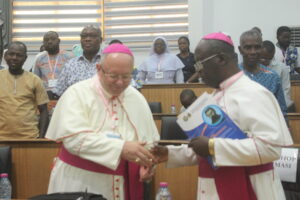
The Holy See, thanks also to the fact that it has no national interests, is considered an impartial interlocutor. The Holy See maintains a broad dialogue and is a credible interlocutor with numerous groups from African states, the Middle East, the Americas, Europe and Asia. His role as an interlocutor has been evident in several cases throughout its history. The Holy See has intervened several times as an international arbitrator, carrying out a discreet but effective work of mediation, pacifying and decisive.
Cardinal Giovanni Lajolo, Secretary for Relations with States from 2003 to 2006, in his conference delivered on 16 February 2006 at the “Circolo di Roma” in Rome, noted that the preamble to the Lateran Treaty concluded between the Holy See and the Kingdom of Italy on 11 February 1929 states that the Holy See enjoys indisputable sovereignty in the international arena. Article 2 of that Treaty states that this sovereignty is ‘an attribute linked to its nature, in accordance with its tradition and the requirements of its mission in the world’. On the basis of this sovereignty, the Holy See, together with the Kingdom of Italy, established in 1929 the Vatican City-State, in which the Holy See has exclusive sovereignty and jurisdiction.
Although the sovereignty of this State is recognized by the international community, it is not separated from the sovereignty of the Holy See. It is connected with it and directed to it, as an instrument of independence and sovereignty of the Pope. The diplomatic relations that individual countries have with the Holy See, from a formal point of view, are of the same nature as they have with other States, since they are relations between two sovereign entities based on international law. On the other hand, as regards the content of these relations, which are concretely realized through embassies accredited to the Holy See, they in fact concern issues related to the activity of the Holy See and the presence of the Catholic Church in various countries.
Pope Francis, in the introduction to Cardinal Tarcisio Bertone’s book “Papal Diplomacy in the World of Globalization,” noted that the main task of diplomacy is service. In the context of the contemporary world, which is characterized by a crisis of values experienced by contemporary States and their institutions, the Pope stated that such a situation creates new opportunities for the activity of papal diplomacy, which are both a challenge. This challenge is to participate in the creation of new relationships between different peoples, so that they are truly just, full of solidarity, thanks to which every people and every person is respected in their identity and dignity.
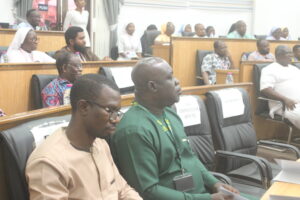
Speaking of the Christian perspective, he noted that it is capable of indicating what is authentically human when it flows from the freedom of the person, from his openness to what is new, and what ultimately comes from his spirit, which unites the human dimension with the transcendent. According to Pope Francis, this is a certain contribution that papal diplomacy will make to all humanity, aiming at the revival of the moral dimension in international relations. The moral dimension, in fact, enables humanity to live and grow together, in love, in relation to its neighbour, without being enemies to one another.
The Beginnings of Papal Diplomacy and Its Current Place in the Church
Papal diplomacy has its roots in the fourth century, when, after the edict of tolerance of Emperor Constantine the Great in 313, popes began to send their legates, or representatives, to Provincial Synods and Ecumenical Councils as well as to territories outside Rome.
According to historians, the first official papal representatives were the envoys of Pope Sylvester I (314-335) at the Council of Arles in 314.[3] In the next century, popes begin to send their representatives to the imperial court in Constantinople. In the history of papal diplomacy, these envoys are called by the Greek term “apocrisari”, or in the Latin version “responsores”. This term was borrowed from the terminology of the then imperial court, where imperial officials were called so, whose duty was to convey the answers (apókrisis) of the emperor.

The figure of the Apostolic Nuncio, in the modern sense of the word, that is, the Pope’s Ambassador invested with an ecclesial mission, to a local and diplomatic Church, accredited to a government, was already present in the year 453, at the end of the Council of Chalcedon. In fact, once the Council was closed, Pope St. Leo the Great asked his Legate, Julian of Cos, who had followed all the conciliar work, to remain in place to help implement the decisions of that Council. And to this end he provided him with two letters of credence: one to accredit him to the local hierarchy, represented by Patriarch Marcian, and another for Theodosius, Emperor of Constantinople.
Towards the end of the ninth century appear the “legates born”, which the Pope will send to the different nations and who will enjoy a greater margin of maneuver towards the civil authorities of the place, compared to the resident local clerics.
In the late Middle Ages, the popes to carry out some diplomatic missions used his fiscal agents, called “collectores”, who were sent to different countries to collect the taxes of the so-called “Peter’s Pence”. In connection with the intensification of contacts between the Holy See and Catholic nations during this period, the fact of appointing those responsible for particular areas called “collettorie”, covering a specific country, had its logical consequence in transforming itself into a permanent diplomatic mission.
With the sixteenth century, international life experienced a substantial change: the nation-state made its appearance in Europe, which acquired its own and well-defined personality. It did not hesitate to clash more and more violently with its neighbors. And diplomacy adapts to this new reality: the intriguing secret agent is replaced by the informant agent who makes himself known and tries to obtain the confidence of his interlocutors. The princes adopted the formula that the Republic of Venice had developed with its credit institutions or its commercial agencies. Diplomatic representatives were seen arriving with pomp, settling at their homes and chancelleries.

The Popes immediately adapted to the new situation and were also inspired by the Venetian model. Thus, the first Apostolic Nunciatures were established, headed by an archbishop sent from Rome: 1500 to Venice and Paris; 1513 in Vienna.
After the Reformation, papal diplomats dealt with the spiritual interests of the Church, in the context of the Catholic Reformation initiated by the Council of Trent (1545 – 1563), in 1545: they will watch over respect for canonical norms and their application, often also defending the freedom of the Church, against the claims of princes.
Certainly, pontifical diplomacy has always been an “instrument” that the Popes have used to ensure – and if necessary defend – the rights of the local churches. This has not prevented the Holy See from participating in peace negotiations.
If, after the Treaty of Westphalia and even more during the eighteenth century, due to the repeated invasions of the Papal States, the pontifical diplomatic action was somewhat dampened, the Congress of Vienna in 1815 returned to give it back all its luster. It is interesting to note that the singular recognition granted to the Pope (who in this historical period is still sovereign of the Papal States) was motivated by the fact that he is, first of all, the spiritual head of the Catholic Church, as Charles -Maurices de Talleyrand-Périgod, pointed out, when he presented to the drafting committee of the Congress a motion, approved without difficulty: “with regard to religious principles and Catholic powers (Austria, France, Spain and Portugal) nothing has changed as far as the Pope was concerned, it was the right of precedence of the Papal Representative.” From this rapid historical retrospective it emerges that what the international community has taken into consideration is the Papacy as a sui generis moral power.
During the Second Vatican Council (1962-1965), in the atmosphere of reforms undertaken, a more precise definition of the tasks and role of papal delegates was postulated, as well as a question about the sense of the existence of the diplomatic service of the Holy See. Can the Church, as a religious community, having her own supernatural ends, for the attainment of which she should use religious means, have recourse in the realization of these ends to diplomatic and political means, which the papal legates have hitherto used in their activities?

This problem was extensively discussed by Pope Paul VI (1963-1978) in his Apostolic Letter of June 24, 1969, on the tasks of the Papal Legates “Sollicitudo omnium Ecclesiarum”. The Pope recalled the nature of his authority in the Church, recognizing that it is full, supreme, direct and universal. The Pope can exercise it freely and directly. As the Successor of Peter, she has the task of being the visible foundation of the Church’s unity, of promoting the indivisibility of the College of Bishops, of pastoral care of all those who do not belong to the Church, and of proclaiming the Gospel to the whole world. In this document, the Pope notes that in carrying out these many tasks he must be in constant contact with the Bishops and the local Churches entrusted to these Bishops. In the realization of this unity, it is not enough just to exchange correspondence, but it is necessary to have envoys who would present the Pope in a permanent way.
Priorities and tasks of pontifical diplomacy today
Speaking about the priorities and tasks of papal diplomacy, it is best to refer to those who manage it and create it every day. The first collaborator of the Holy Father is the Secretary of State, who in his mission is assisted, among others, by the Archbishop’s Secretary for Relations with States.
Cardinal Pietro Parolin, who took up his function on 15 October 2013 in an interview for the Italian weekly “Avvenire”, speaking about the reform of the Roman Curia, also referred to the role of papal diplomacy[5]. He said that throughout history, the Church has considered diplomacy as an instrument to fulfill its mission with regard to freedom, religious freedom and peace in the world. From the open perspective of Pope Francis, in a pluralistic world, which is also in danger of disintegrating, papal diplomacy can and must come closer to individuals and nations in order to help them understand the fact that the differences that exist between them are a certain good and wealth.
It is also meant to help to channel these differences, in the most harmonious way, in order to build a world of humanity and fraternity in which there is room for all, and above all for the weakest. According to Card. Parolin this appeal of the Pope to politicians and to all people of good will must have a special echo among those who work in the Church among those responsible for shaping politics. In this interview, Card. Parolin emphasized that the Holy Father himself speaks about the priorities, current tasks and commitment of papal diplomacy in his traditional address to the Diplomatic Corps, accredited to the Holy See, which he traditionally delivers at the beginning of January each year.
On November 15, 2019, in the conference entitled “Diplomacy of Values and Development”, H.E. Msgr. Paul Richard Gallagher, Secretary for Relations with States, affirmed that the diplomacy of the Holy See is “essentially aimed at pursuing the ‘values’ that are proper to Christian Revelation and that coincide with the deepest aspirations for Justice, Truth and Peace, which, although declined historically and with a variety of forms through the ecclesial Magisterium, are in their essence common to man of every place, of every time and of every social background”. H.E. Msgr. Gallagher then pointed out that the relationship with values is at first sight something foreign to the common conception of diplomacy, as a science and art of conducting international relations. Diplomacy is at the service of the government of the State and pursues its ends: it is a pure method that does not look at values.
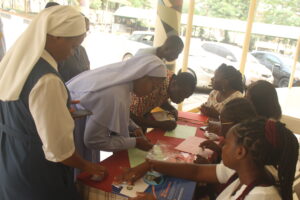
However, that of the Holy See is really different from other diplomacies, already by the very fact of being State Diplomacy and Church Diplomacy. The pontifical one is “a ‘diplomacy of values’ and not an ‘instrumental diplomacy’. Even if it is an instrument for the development of a full and authentic freedom of the Church and of men”.
It seems correct to say that the primary purpose of the diplomacy exercised by the Pope and his collaborators is to defend and promote the good of the Catholic Church. However, this aim does not prescind from the good of all humanity, especially the poor.
On 28 November 2019, on the occasion of the inauguration of the Academic Year of the Catholic University of the Sacred Heart of Milan, H. E. Card. Pietro Parolin, with the Lectio magistralis entitled “A diplomacy at the service of peace”, illustrates in an excellent way the reason for pontifical diplomacy: “For what purpose does pontifical diplomacy act? To give an answer we can recall historical reasons here – I believe that the arguments of Balladore-Pallieri and Vismara are still valid and affirm that it is an action continued in continuity over the centuries or perhaps it can be read following the course of events and decisions adopted.
Often, however, it is neglected to indicate that we are faced with an action developed following the forms of permanent diplomacy that have seen and see the Holy See part of that network of stable relations between nations which, with all possible limitations, still represents today an instrument at the service of human coexistence and its aspiration to security, to stability and to peace. Pontifical diplomacy, in fact, although firmly anchored by its nature to primarily ecclesial tasks that place it at the service of the universal mission of the Church, remains projected into the work of guaranteeing orderly world coexistence, that desired peace which, far from being balance, is in the first place synonymous with and effect of justice”.
But pontifical diplomacy does not only concern relations with States and, therefore, one can and must speak of a Church diplomacy, which concerns both ecumenism and interreligious dialogue. For ecumenism, by way of example, it could be recall that when on February 12, 2016, Pope Francis met Kirill, Patriarch of Moscow, he chose Cuba as a meeting place, conscious of making a choice with a highly symbolic value. At least some of the significant passages of the “Joint Declaration” deserve mention: “We address, with a fervent appeal, to all parties who may be involved in conflicts to show good will and sit at the negotiating table” and again: “In this disturbing age, interreligious dialogue is indispensable”.
For interreligious dialogue, it also could be point out that on 4 February 2019 the signing in Abu Dhabi (United Arab Emirates) of Pope Francis and the Grand Imam of Al-Azhar Ahmad Al-Tayyeb of the Document on “Human Fraternity for World Peace and Living Together”10 is a milestone for interreligious and intercultural dialogue, with political developments – in the highest and noblest sense of the term – that are easy to imagine, “symbol of the embrace between East and West, between North and South and between all those who believe that God created us to know each other, to cooperate with each other and to live as brothers and sisters who love each other”.
Conclusions
After tracing the development of papal diplomacy, it can be said that its meaning and purpose are determined by the supreme law to which the activity of the whole Church is subordinated, and which law is the salvation of souls, as stated in the last canon of the Code of Canon Law, canon 1752. Even in the times of the existence of the State of the Church, which had the attributes of a typical state, the meaning of its existence was to ensure the independence of the Holy Father’s person from the secular authority in the fulfillment of his spiritual mission.
The diplomatic activity of the Holy See does not pursue political and worldly goals, but it pursues spiritual and religious goals resulting from the mission of the Church. On the one hand, it has the task of ensuring freedom for the Church in the realization of her strict religious mission, on the other hand, it proposes cooperation to states and international organizations in the recognition of the highest moral values in building and strengthening peace in the world, the development of solidarity between peoples. As the Holy See’s foreign minister, H.E. Archbishop Gallagher, said, it is a diplomacy of values.
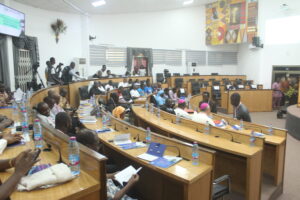
The diplomatic activity of the Holy See is a concrete expression of its two fundamental tasks: to promote unity between the universal Church and the local Churches, and to bring about the historical actualization of the solicitude (sollicitudo) that the Pope, as supreme Pastor of the universal Church, must have for Christ’s flock in building up the Kingdom of God in human history[7]. And in carrying out this mission, papal diplomacy is a tool that also undergoes changes according to needs. Speaking about papal diplomacy, it should be stated that one of its main tasks are activities aimed at achieving ecclesiastical unity. This task derives from the fact that she belongs to the community that is the Church, which is scattered throughout the world. The center of this unity is the “office of St. Peter” exercised by the Pope. In order to answer the question about the sense of the existence of papal diplomacy, one can indicate that the first reason for its existence is help in the exercise of the office entrusted to St. Peter and his successors. This is also the task of helping the Pope, which is also the responsibility of the Roman Curia, of which papal diplomacy is an integral part.
Therefore, asking about the nature of papal diplomacy, one should say that it is essentially pastoral. Cardinal Bertone, in an interview for the weekly “Famiglia Cristiana”, stated that the key to interpreting the teaching of Benedict XVI is pastoral activity. He also mentioned that this vision was shared by his predecessor as Secretary of State, Cardinal Angelo Sodano, who in his book “The leaven of the Gospel. The presence of the Holy See in the life of peoples” emphasized the pastoral nature as one that also characterizes the mission and diplomats of the Holy See. Commenting on his election to the post of Secretary of State, Cardinal Bertone noted that the election of a diocesan pastor to this position testifies to this pastoral option.
Of course, this pastoral character of papal diplomacy is not a matter of the last pontificate alone, because it flows from the very ecclesial character of papal diplomacy. A visible sign of which is the fact that the papal representatives are priests and bishops. In 1962, Pope John XXIII established that apostolic nuncios were endowed with the episcopal dignity from the very beginning, and not, as was the case during the pontificate of Pius XII, only a few years after their appointment.
This fact makes more visible the function of the communication between the Holy Father and the bishops of the local Churches, which is also emphasized by the present Code of Canon Law, which brings to the fore this task of papal legates (can. 364). Speaking of the purpose of papal diplomacy, this seems to be best expressed by the wording used by Cardinal Sodano in his last book: “All the structures of the Roman Curia, all the Pontifical Representations among the various countries of the world, all the organisms that operate through the Chair of Peter, have one goal: to bring the leaven of the Gospel of Christ into the life of individuals as well as peoples.”
The Holy See is at the service of individuals and nations, to help them walk together on the paths of life and hope. Pontifical diplomats seek, with their presence, their action and with the mediation of the diplomatic instrument, to convince those who hold responsibility for societies that violence, fear, evil, mistrust, death cannot have the last word. Those who are familiar with Christianity will not be surprised: the Christian, in fact, does not believe in the fatality of history. He knows that, with God’s help, man can make the journey of the world fruitful with beauty, goodness and truth.
And it is for this reason that the Holy See does not promote the law of force but guarantees the force of law. In Pope Francis’ diplomacy, the concept of mercy also becomes a political category. The power of mercy, in fact, if it invests the world with its great arms, is capable of changing historical processes, to the point of their very meaning. The epochal significance of the attribution of a political and not only religious value to the concept of mercy has already been understood by many and not only in the ecclesial sphere.
With Pope Francis, the weight of pontifical diplomacy in the international forum is growing. However, presenting the Catholic Church in the eyes of the world is a delicate task.
By pontifical diplomat we mean not only the apostolic nuncio, known to most as “the Pope’s ambassador”, but also the individual representatives of the Apostolic See, including observers and pontifical delegates. The nuncio is the organ through which the Holy See exercises the right of legation in the external form, that is, in its relations of international law with individual States, or in the internal form, that is, in its jurisdictional relations with the dependent ecclesiastical provinces. The nuncio, therefore, carries out a diplomatic mission, and as such is regulated by international law, with regard to relations with the host State. At the same time, it is also an authoritative mission, with regard to relations with the local hierarchy, being governed, as such, by canon law. Between the Holy See as an organ of the Catholic Church and the individual States there have always been numerous negotiations on matters of common competence.
The Church avails herself of pontifical diplomats who work to maintain concord and defend the rights of catholicity in the host State between ecclesiastical and secular power. The Pope, therefore, can communicate, in several titles and in multiple channels, with the whole world. He has at heart, in the first instance, the care and salvation of souls, since the Church is a society among societies and, therefore, must be able to maintain relations of various kinds with other social structures. The Pope, however, cannot carry out all these tasks alone. Here, therefore, is the need to send, from the earliest ages, representatives to the various States, whose function varies according to the needs and the context”. But what are the legal principles that inspire this diplomatic activity? At the Holy See they do not concern economic or military questions, much less political ones. At multilateral diplomatic tables or bilateral negotiations, the Holy See does not offer economic or military cooperation in terms of counterpart. The pontifical diplomat believes in the power of ideas and reason, encouraged by historically striking results, such as the mediation between Argentina and Chile (1979) and the “martyrdom of patience,” exercised by the ostpolitik of cardinals Agostino Casaroli and Achille Silvestrini, which during the “Cold War” eroded the communist regime in Eastern Europe. Moreover, pontifical diplomacy focuses on the human person, without posing ethnic, cultural or religious differences.
The pontifical diplomat focuses on fundamental human rights, such as the right to life, education, freedom, democratic participation, giving particular emphasis to freedom of conscience and religion, as everyone must be free to express themselves according to what is inspired by their conscience and if believers, they must be free to profess their religion, both privately and publicly. With regard to the aggregation of groups and peoples, the Pope’s ambassadors do not propose any stereotyped model of politics or constitution.
More simply, they limit themselves to a calm dialogue, aimed at ensuring full participation and co-responsibility for every action in an active and democratic social context. The Holy See, through its diplomats, is committed to multilateral relations and the growth of supranational law in general. Repudiating violence, the use of force, intimidation and pressure, it suggests supportive relationships, based on just laws. That is why the Holy See has always supported the role of the United Nations and the popes have visited the headquarters in New York.
The UN is not interpreted by the Holy See as an administrative center but as a family of nations. The aim is to promote a culture that fosters and encourages dialogue on an international scale. Pope Francis recalled on January 13, 2014, the diplomatic corps accredited to the Holy See: “Everywhere the way to resolve open problems must be the diplomatic one of dialogue. To make the moral force of law prevail over the material force of arms”.
In fact, “the Church has no solutions for all particular questions; However, together with the various social forces, it accompanies proposals that can best respond to the dignity of the human person and the common good”. The Catholic Church is the only religious confession to have a hierarchy that goes beyond the boundaries of the territory of the Vatican State, that is, a supranational hierarchy and a total and absolute independence from civil powers, having a supernatural purpose that descends to it “iure divino”.
Pontifical diplomacy was not born with the aim of dialogue at the supranational level, since the first representatives played roles of restoring the correct vision of the faith in ecclesial plenary forums: synods and councils. The task of the pontifical diplomats, almost always consecrated men, was not to deal only with rights of a temporal nature of the Pope and the Holy See, but they had absolute priority the matter of strict religious matrix that had to be reflected in the social and juridical organization of the national states.
The pontifical diplomat, in his activity, does not refer only to ecclesiastical and canon law, but is open to confrontation with the juridical systems of nations, in an always constructive dialogue, offering proposals that favor the spread of an international public law.
The Holy See does not have the characteristics of any nation State, due to the particular nature of its institutional task: while the nation States have as their main task the protection of the national territory and the integrity of a people that identifies itself with that particular nation, the Holy See, as the summit of the universal Church, has as its fundamental and structural purpose not self-defense, but universal salvation.
Therefore, the apostolic nuncio does not have as his first task the defense of particular, statuary, nationalistic interests, like any accredited ambassador, but always acts in a universalistic perspective, as a defense of the dignity of peoples and of every person who belongs to a people of the Earth.
The same universalistic spirit is concretized in the concordats, which, before being instruments of defense of the specific interests of the Holy See, are a way of “incarnation” of the spirit and evangelical anthropology proposed as a basis of solidarity, for every just and fully human coexistence. And this even when in the concordats, and in the operation of the nuncio, particular visions of social organization are affirmed, which derive from religion, such as, for example, the Catholic doctrine of marriage.

In the light also of the conciliar documents and the post-conciliar interventions of the pontiffs such as in particular the motu proprio “Sollicitudo Omnium Ecclesiarum” of Paul VI, the main purpose of the diplomats representing the Holy See is to foster an open dialogue between the Church and national and international institutions to increase the development of peace among nations with respect for the fundamental rights of the human person. As also emphasized by the canons of canon law, diplomats of the Holy See must adhere to this universalistic vision, with courage and responsibility.
By Henryk M. Jagodziński, Apostolic Nuncio to Ghana

